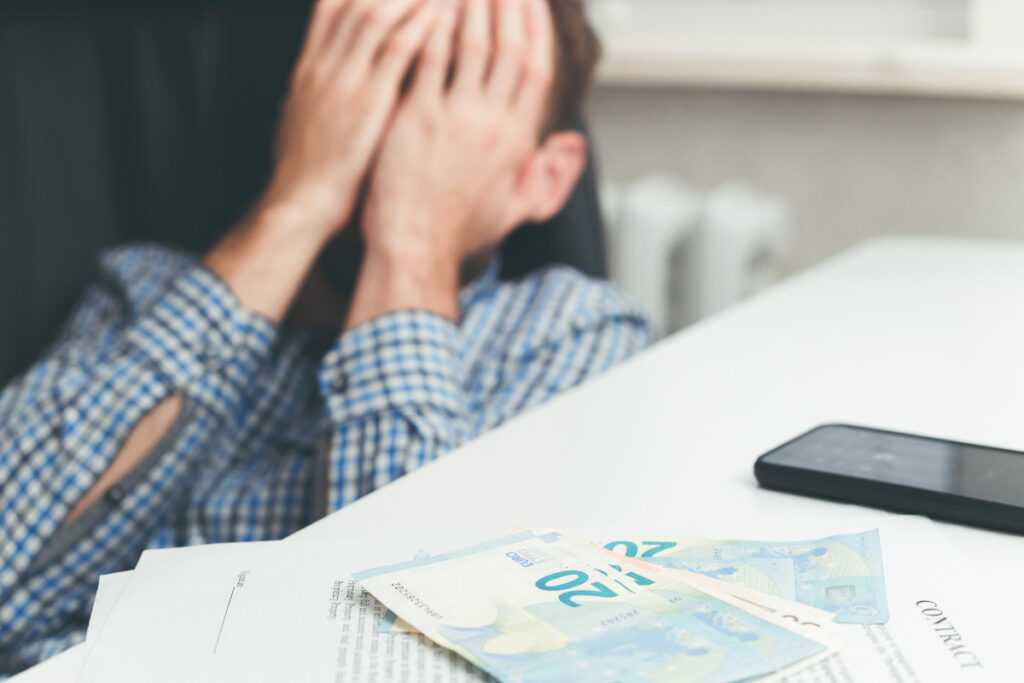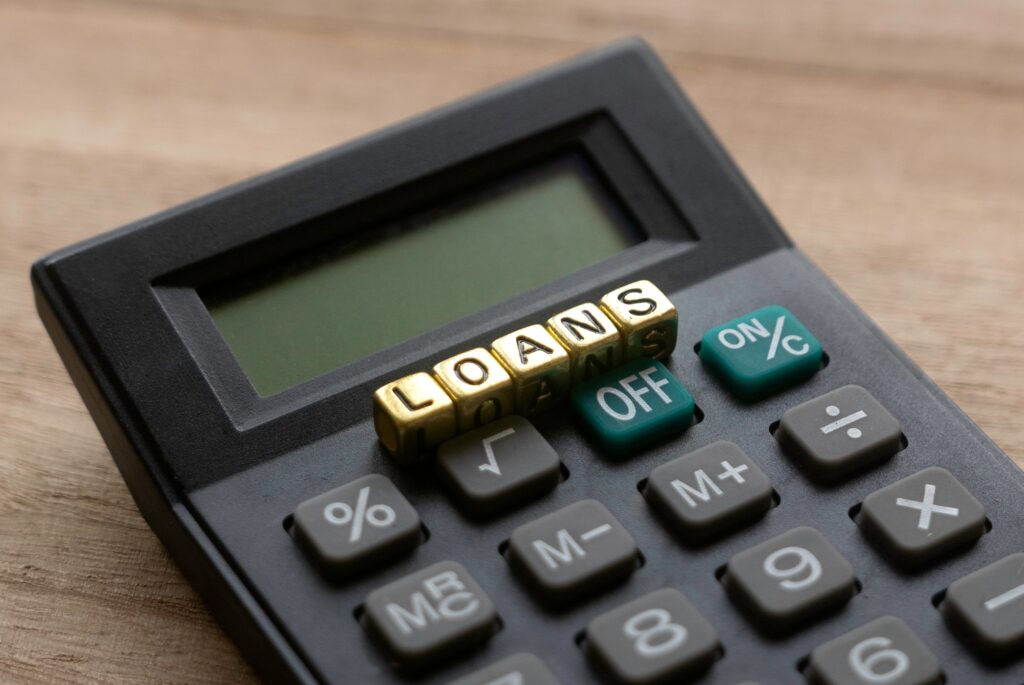Introduction
Solar power is popular with property owners as the world shifts towards clean energy. Especially homeowners seeking to reduce their carbon footprint and save on electricity costs. You may have questioned, “Why not go solar?” This blog breaks down the most common reasons people hesitate to switch. This also explores the pros and cons of solar energy, debunks common solar myths and provides valuable insights into what it takes to go green with solar power.
Reasons People Are Hesitant To Go Solar
People may hesitate to go solar due to misconceptions about the industry. Among these are misleading advertising and unrealistic expectations. Some believe solar panels are unattractive. While others have concerns about high costs and HOA restrictions. People are turned off, too, because of the distrust of aggressive sales tactics.
Misconceptions About The Solar Industry
Misconceptions about the solar industry have been a significant barrier for many property owners considering switching to renewable energy.
One prevalent misconception is that photovoltaic panels are inefficient and unable to generate enough electricity for an entire household. However, modern solar panels are far more efficient than their predecessors and can produce sufficient energy even on cloudy days.
Furthermore, with net metering programs in place, excess power generated by your system can be sent back to the grid. Net metering allows you to earn credits toward future energy consumption.
Another widespread myth suggests that switching to solar requires complicated alterations in a home’s structure and electrical system. In reality, installing solar panels typically involves minimal changes – especially if working with a reputable company experienced in home installations.
Grid-tied systems are designed to easily integrate into existing electrical setups without major modifications.
Debunking solar industry misconceptions and providing accurate information can increase property owners’ confidence in exploring renewable energy options. This can lead to long-term financial benefits, such as reduced electricity bills and increased home value.

Misleading Advertising And Unrealistic Expectations
Misleading advertising and unrealistic expectations are significant in why property owners hesitate to go solar. Solar companies’ overly optimistic claims about cost savings and energy production can distort the perception of what solar systems can deliver.
For instance, advertising may promise the complete elimination of electricity bills. In reality, most households still require some connection to the grid for backup during low-sun periods.
Furthermore, aggressive marketing campaigns promoting “one-size-fits-all” solutions often overlook crucial factors. They don’t consider location, home orientation, or shading, which can significantly impact a solar system’s performance.
As a result, property owners may end up with poorly performing systems that don’t meet their specific needs or circumstances. To combat this issue, potential solar adopters should conduct thorough research and work with reputable professionals. These professionals prioritize transparency about what they can realistically expect from a residential solar installation based on their unique situation. They will lay down expectations regarding energy output and future financial return on investment.
Distrust Of Aggressive Sales Tactics
Distrust of aggressive sales tactics significantly contributes to property owners’ hesitation in going solar. The renewable energy industry has seen a sharp increase in door-to-door sales pitches. Often, many homeowners perceive it as pushy or intrusive.
Solar companies’ high-pressure techniques can make potential customers uncomfortable and uncertain about product legitimacy.
For example, several complaints have been filed against solar panel companies for deceptive practices. Some provide misleading information on rebates, warranty details, or cost savings.
In response, consumer protection agencies like the Better Business Bureau (BBB) warn homeowners about free solar panel offers. These offers might be fraudulent schemes designed to extract personal and financial information from unsuspecting victims.
Aesthetics: Believing Solar Panels Are Ugly
One of the reasons why homeowners are hesitant to go solar is because they believe that solar panels are ugly. Unlike their outdated counterparts, modern solar panels feature sleek, unobtrusive designs that complement any home aesthetic.
Low-profile or inconspicuous solar panel options also exist for those who want a more subtle look. In fact, many homeowners find their homes’ appearance actually improves after solar installation. Solar panels now have a clean and modern look.
Myth That Solar Energy Is Too Expensive
The cost of solar energy installation is often cited as a primary concern for property owners. However, while upfront costs can be high, the long-term benefits of reduced electricity bills and increased home value make them worthwhile.
Additionally, several financing options exist to assist with initial expenses.
Furthermore, the cost of conventional electricity generation continues to rise. While the price of solar technology continues to decline.
Concerns About HOA Restrictions
Unfortunate as it may be, HOAs can restrict the size and placement of solar panels in a community. This has led to some homeowners being nervous about going solar. That said, the Solar Rights Act protects homeowners’ right to install solar energy systems while allowing “reasonable restrictions” by the HOA.
Though reasonable restrictions vary by community, you can navigate them with proper planning and research.

Pros And Cons Of Solar Energy
Solar energy has both positive and negative aspects. On the one hand, it can reduce your electricity bill and have a significant environmental impact by reducing carbon emissions.
On the other hand, it is dependent on sunlight, requires high upfront costs, and could affect your home’s aesthetics.
Positive Environmental Impact
Switching to solar energy offers numerous environmental benefits, including zero carbon emissions during generation. This clean and sustainable energy source helps reduce your carbon footprint and greenhouse gas emissions contributing to climate change.
In addition to saving the planet, solar panels can save you money and contribute to sustainable development. They reduce electricity consumption from conventional power plants, minimizing air pollution and improving air quality.
Reduced Electricity Bills
One of the most significant benefits of switching to solar energy is reduced electricity bills. With solar panels installed on your roof, you can generate electricity and rely less on utility companies.
This means you’ll save on energy bills monthly and reduce your carbon footprint.
A typical household in the United States spends around $1,500 per year on electricity bills alone. By installing a solar energy system, homeowners can offset a portion or even all of this cost depending on their usage patterns and available sunlight exposure.
Additionally, some states offer net metering programs where excess power generated by the homeowner’s solar panel system can be sold back to the grid for credits toward future bill payments.
Dependence On Sunlight And Weather
Property owners may have one concern when considering solar energy: dependence on sunlight and weather patterns. While solar panels can still generate power on cloudy days, their efficiency decreases significantly.
Additionally, solar power alone may not meet a household’s energy needs during low sunlight or high electricity demand.
However, it’s important to note that technological advancements in solar panel efficiency and storage capacity are constantly being made. Energy storage solutions such as batteries allow homeowners to store excess electricity generated by their panels for later use when more power is needed, but sun exposure is limited.
High Upfront Costs
While the idea of going solar is appealing, one of the major drawbacks is the high upfront costs. Installing a solar panel system can cost tens of thousands of dollars, depending on factors such as roof size and location.
Additionally, energy storage systems like batteries are also expensive, adding to the initial investment. However, it’s important to remember that while these costs may seem daunting, they often pay for themselves over time through reduced energy bills and increased home value.
Investing in solar energy has numerous benefits despite high upfront costs, including savings on electricity bills and reducing carbon footprint. However, careful consideration is needed, including feasibility assessments based on your property’s location and weather patterns.
Increased Home Value
Solar energy can be a valuable investment for homeowners, not only in terms of reducing electricity bills and their carbon footprint but also in increasing the value of their property.
According to research from the Lawrence Berkeley National Laboratory, homes with solar panels installed may increase in value by an average of $15,000. This added value is due to the potential cost savings on electricity bills and the appeal of owning an eco-friendly home with renewable energy technology.
Debunking Solar Myths
Several myths about solar energy prevent people from going solar, including the belief that panels don’t work in winter or require constant maintenance – but we’re here to tell you that these misconceptions couldn’t be further from the truth.
Solar Panels Do Not Work In Winter
One of the most widespread myths about solar panels is that they do not work during winter. However, this is far from the truth. While snow and ice buildup can impact a solar panel’s efficiency, panels continue to generate power regardless of temperature.
In fact, many northern countries, such as Germany, have embraced solar energy and have been able to harness it successfully even in cold winters.
Before going solar, you must consider all the factors, including your location’s weather patterns and available sunlight throughout the year.
Solar Panels Require Constant Maintenance
Misconceptions about solar energy often make people think that maintaining solar panels is arduous. However, the reality is quite different. Solar panels are designed to last several decades and require very little upkeep once installed properly.
While it’s true that dirt and debris can accumulate on the surface of solar panels over time, causing a drop in efficiency, this doesn’t mean they require constant maintenance.
Furthermore, advancements in solar technology have resulted in more efficient and durable equipment than ever before. For instance, some newer models have built-in self-cleaning mechanisms or use anti-reflective coatings to prevent dust accumulation.
Solar Energy Is A Scam
Solar energy has gained popularity over time in most households and businesses as more people seek alternative sources of electricity. However, some critics peddle unsubstantiated claims that solar energy is a scam.
This misconception arises due to limited knowledge about photovoltaic systems’ technological advancements and their benefits. As a property owner, it is essential to understand that solar panels can significantly reduce your electricity bills while reducing your carbon footprint by tapping into renewable energy sources.

Considerations Before Going Solar
Before switching to solar energy, there are several key considerations to remember, such as determining feasibility, researching financing options and incentives, choosing a reputable solar company, and ensuring proper panel placement on your roof.
Determine Feasibility
Before jumping into solar panel installation, it’s crucial to determine the feasibility of a solar project. This requires an assessment of several key factors, such as roof structure, orientation, and nearby shade.
For instance, a south-facing rooftop with little or no shading is ideal for solar panel placement since it receives maximum sunlight throughout the day.
Additionally, conducting a cost-benefit analysis will help property owners evaluate whether they can access good financing options or incentives to adequately adequateadequate financing options or incentives that can offset the upfront costs associated with installing solar panels.
Research Financing Options And Incentives
If you want to install a solar energy system on your property, financing is one of the most important considerations. Here are some key factors to keep in mind:
- Government incentives: Federal, state, and local governments offer various incentives for homeowners who install solar panels. This can include tax credits, rebates, or performance-based incentives.
- Solar panel leasing: If you don’t have the upfront cash to purchase solar panels outright, leasing can be a good option. With a solar lease, you pay a monthly fee to use the system instead of buying it outright.
- Home equity loans: Another option for financing your solar installation is taking out a home equity loan. This lets you borrow against your home’s value and repay the loan over time.
- Energy-efficient mortgages: Some lenders offer special mortgages that allow homeowners to finance energy-efficient upgrades like solar panels as part of their mortgage.
Ultimately, the best financing option for you will depend on your individual circumstances and financial goals. Also, while financing can help make solar affordable for many homeowners, not everyone will be eligible due to factors such as credit score or income level. Research all available options and consult a trusted solar installer before making decisions.
Choose A Reputable Solar Company
When considering the installation of solar panels, it’s essential to choose a reputable solar company that you can trust. Do your research and look for certifications and reviews from customers who have already installed solar systems with them.
It’s also recommended to obtain multiple bids from different companies to compare prices and services.
A reliable solar company will take the time to explain how solar power works, provide information about any extra costs involved in the installation and advise on financing options available.
Additionally, they should offer warranties for their workmanship and products.
Solar Panel Placement And Roof Condition
One of the most important factors to consider before going solar is the placement of solar panels and the condition of your roof. Here are some key points to keep in mind:
- Evaluate your roof’s condition: Solar panels are long-term investments, so it’s essential to ensure that your roof is in good condition and can support their installation for the next 25+ years.
- Consider available space: Check if you have enough unshaded and open rooftop space for installing solar panels. South-facing roofs are ideal as they receive more direct sunlight, but other orientations may work, too, depending on how much sunlight they get during daylight hours.
- Roof age matters: If your roof is old or needs repair soon, replace or restore it before installing solar panels. This will prevent damage or potential leaks during panel installation later on.
- Panel weight: Solar panels typically weigh around 40-50 pounds each, a significant load on your roof structure over time. Ensure your roof is strong enough to bear this added weight without causing any damage.
- Angle matters: The angle of your roof also plays a crucial role in determining how efficiently your solar panels will capture energy from the sun. Depending on the pitch and orientation of your roof, you may need to adjust the angle of your solar panels accordingly.
- Local regulations: Some homeowners’ associations (HOAs) may have certain restrictions or guidelines regarding rooftop solar panel installations that could affect where and how you can install them.
By carefully assessing these factors before installing a solar power system, you can improve its efficiency, longevity, and cost-effectiveness while reducing potential headaches.
Local Regulations And Home Orientation
Before embarking on a solar energy installation project, it’s important to understand and comply with building codes and regulations in your area. Some cities or counties may have specific requirements for renewable energy systems, including permitting, inspection, and certifications.
It’s also essential to assess the orientation of your property and roof for optimal solar access.
For instance, if you live in an area with many trees or buildings obstructing sunlight from reaching your roof during peak hours (usually between 10 am – 4 pm), this could negatively affect how much electricity you generate through your solar panels.
That’s why homeowners should contact their local authorities to get information about obtaining permit approvals or restrictions before they install a Solar Energy System at home.

Financing Options For Solar Installation
Several financing options are available for solar installation, including government incentives, solar panel leasing, home equity loans, and energy-efficient mortgages.
Government Incentives
If you’re a property owner considering going solar, it’s essential to note the various government incentives available. For instance, The federal solar tax credit is one such incentive that offers a one-time credit to solar customers to reduce the installation cost.
Additionally, many states and cities have rebate programs or net metering policies that allow homeowners with solar systems to sell excess electricity back to the grid at market rates.
For example, New York residents can use financing and incentive options for going solar, such as state loans and grants.
Solar Panel Leasing
Solar panel leasing is a financing option that allows homeowners to install solar panels without the high upfront costs of purchasing and owning the system. Here are some important facts about solar panel leasing:
- With a solar lease, the homeowner pays a fixed monthly amount to use the solar system, while the company that installs the panels retains ownership.
- Because the homeowner does not own the system with a lease, they may not be eligible for government or private rebates or incentives for solar panels.
- Leased solar panel systems can make it more challenging to sell a home since potential buyers may not want to assume an existing lease or buy out the system.
- Solar panel leases typically have long-term contracts ranging from 10-25 years, with fixed monthly payments.
- While leasing may offer lower initial costs, overall savings may be less than owning and purchasing a solar energy system.
If you’re considering going solar and want to explore financing options like leasing, research your choices thoroughly and compare pricing and terms from different financing programs. Additionally, consider local regulations, home orientation, and roof condition before financing or purchasing solar panels outright.
Home Equity Loans
One common financing option for solar installation is through home equity loans. Homeowners can borrow against the equity they have built in their homes, allowing them to finance the initial solar panel installation costs.
Before choosing this route, it’s important to consider factors such as interest rates and repayment terms.
Additionally, financing solar panels through a home equity loan may provide tax benefits for homeowners. Interest payments on the loan may be tax-deductible since the borrower is using the funds towards improving their home’s energy efficiency.
Energy-Efficient Mortgages
If you’re considering solar installation but worried about the upfront costs, an energy-efficient mortgage might be a viable option. Here are some things to know:
- Energy-efficient mortgages are available through the Federal Housing Administration and Fannie Mae, allowing borrowers to add solar as part of their mortgage.
- Conventional energy-efficient mortgages offer the most generous loan terms, allowing borrowers to borrow up to their qualifying amount.
- Home equity loans and HELOCs are good financing options for solar panels if you have sufficient equity in your home.
- Personal loans, government loans, and interest-free solar panel loans are other financing options for solar energy.
- Financing solar panels may be worth it, as understanding and calculating solar power can help homeowners determine the cost and benefits of installation.
By considering an energy-efficient mortgage or other financing options, you can turn your property into an energy-efficient haven while saving money on electricity bills and reducing your carbon footprint.
Conclusion
In conclusion, it’s understandable why people may be hesitant to go solar. Misconceptions, misleading advertising, and high upfront costs can create doubt and distrust in the industry.
However, with proper research and consideration of factors such as roof condition and local regulations, going solar can provide significant benefits such as reduced energy bills and a positive environmental impact.
Debunking myths about solar panels working in winter or being dangerous to roofs is crucial for homeowners to make informed decisions. Solar financing options like government incentives or home equity loans make it more accessible.
While solar energy may not suit everyone, exploring alternative energy-saving solutions could lead to a more cost-effective way of living sustainably.

FAQs:
- What are the drawbacks of going solar?
While there are many benefits to using solar energy, there are also some potential drawbacks, such as high upfront costs, ample sunlight exposure, and maintenance requirements for panels and related equipment.
- Can a solar energy system power my home entirely?
This depends on several factors, including your home’s size, overall electricity usage levels, and the efficiency of the specific photovoltaic panels you choose to install. A professional installer can help perform an energy audit and provide customized recommendations based on these variables.
- How long does a solar panel system take to pay for itself?
On average most residential systems will pay themselves off within 7-10 years – less time if local prices per kWh rise or incentives available increase over time; longer periods may apply in areas with unfavorable conditions.
- Will installing solar panels on my roof damage it?
Modern roofs can safely handle PV installation when properly done by an experienced contractor. Poor installation methods or shoddy workmanship in older structures could cause issues.
